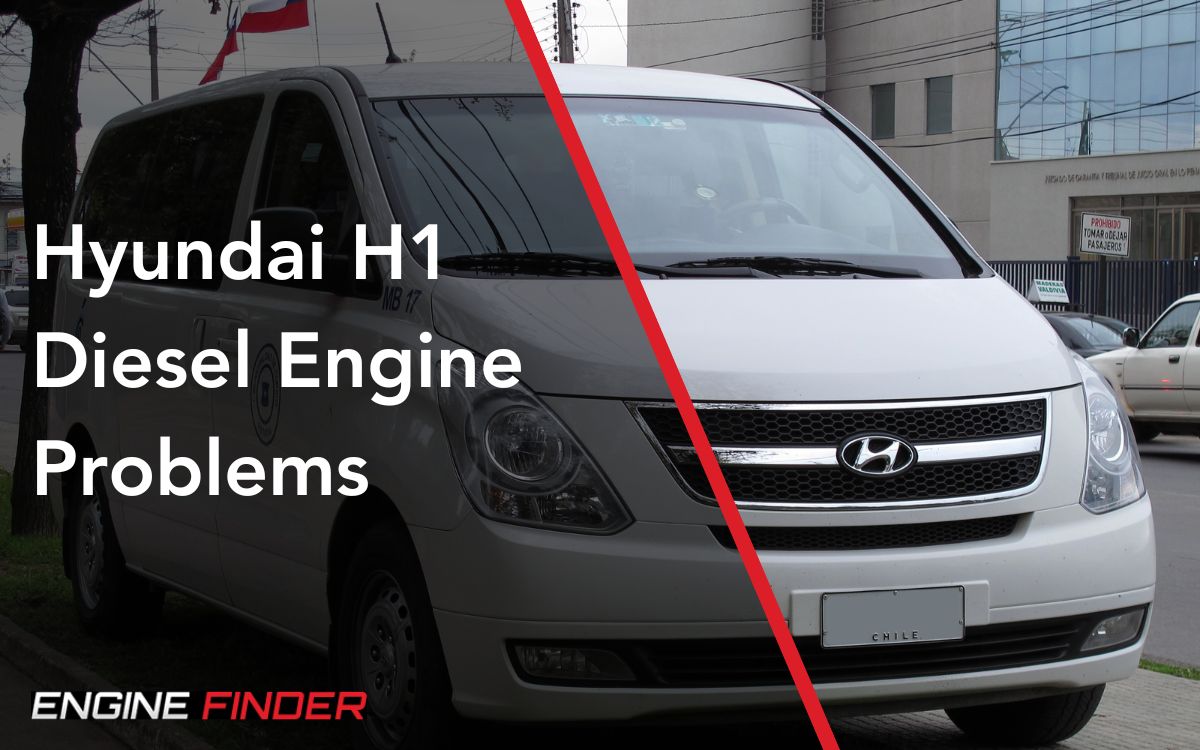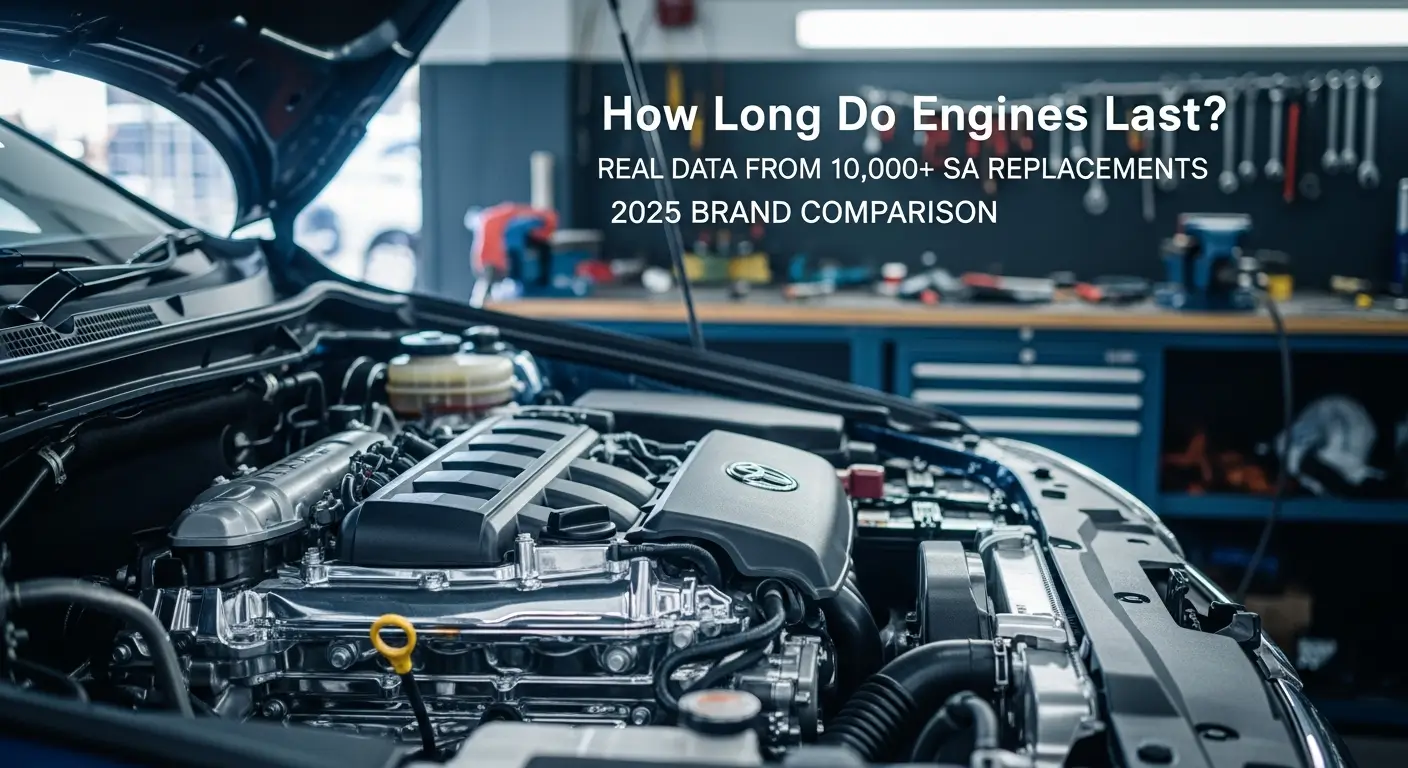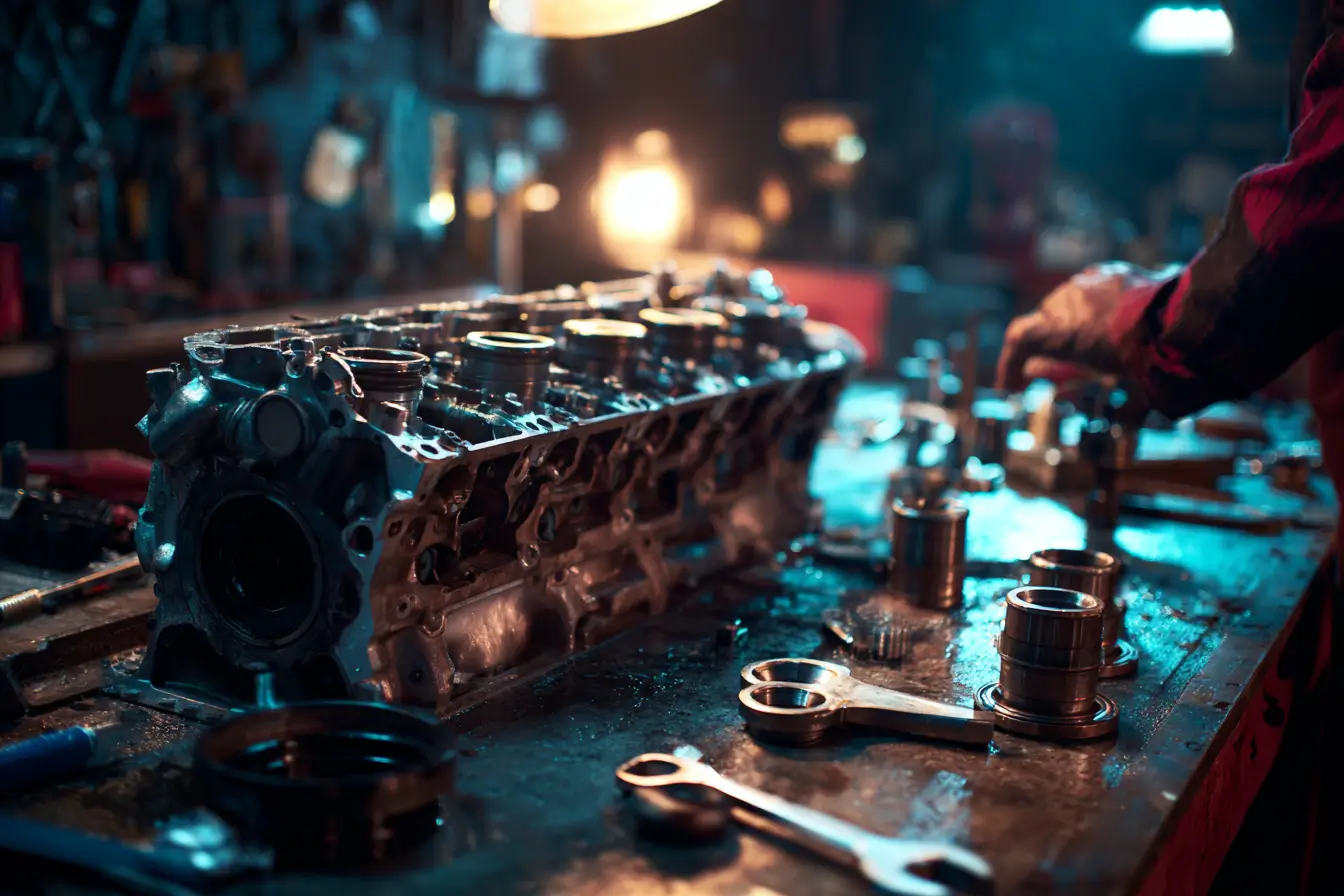
Hyundai H1 Diesel Engine Problems: Complete 2.5 CRDi Troubleshooting Guide
Key Takeaways
| Problem | Main Symptoms | Possible Causes |
|---|---|---|
| High Fuel Consumption | Excessive fuel usage, poor economy | EGR valve problems, dirty injectors |
| Turbocharger Failures | No power above 2000 RPM, black smoke | Turbo bearing failure, oil contamination |
| EGR Valve Problems | Rough idle, reduced power | Carbon buildup, valve sticking |
| DPF Filter Blockages | Warning lights, limp mode | Incomplete regeneration cycles |
| Fuel Injector Issues | Rough running, white smoke | Injector clogging, electrical faults |
The Hyundai H1 with its 2.5-liter CRDi diesel engine has been a popular choice for commercial and family transport in South Africa. This robust van delivers solid performance and reliability, but like all modern diesels, it can experience specific issues that owners should understand. Proper maintenance and early problem recognition are essential for preventing costly repairs and ensuring optimal performance from this hardworking vehicle.
Hyundai H1 2.5 CRDi Engine Specifications
| Specification | Details |
|---|---|
| Engine Code | D4BH |
| Displacement | 2.5L (2,497cc) |
| Configuration | Inline-4, DOHC, Turbocharged Diesel |
| Fuel System | Common Rail Direct Injection (CRDi) |
| Power Output | 103 kW (138 HP) @ 3,800 rpm |
| Torque Output | 343 Nm @ 2,000 rpm |
| Production Years | 2008-2019 |
1. High Fuel Consumption
Causes
- EGR Valve Problems: Clogged exhaust gas recirculation valve affecting combustion.
- Dirty Fuel Injectors: Carbon deposits reducing injection efficiency.
- Air Filter Blockage: Restricted airflow reducing combustion quality.
- Driving Patterns: Excessive short trips preventing proper engine warm-up.
Symptoms
- Fuel consumption significantly higher than expected 8-9L/100km.
- Real-world figures approaching 12-14L/100km in city driving.
- Black smoke from exhaust during acceleration.
- Reduced engine performance and responsiveness.
Solution
- Clean EGR valve and intake system regularly.
- Use quality injector cleaner every 10,000 km.
- Replace air filter according to service schedule.
- Take vehicle on highway drives weekly to reach full operating temperature.
DIY Difficulty / Hours
- Air Filter Replacement: Easy / 0.5 hours
- EGR Cleaning: High difficulty / 3-4 hours
- Professional Service: R250 - R400 for air filter. R800 - R1,500 for EGR service.
Fuel Economy Tip
The H1 should achieve 8-9L/100km combined. If consumption exceeds 11L/100km consistently, investigate EGR valve and injector cleanliness immediately.
2. Turbocharger Failures
Causes
- Oil Contamination: Dirty oil causing turbo bearing failure.
- Carbon Buildup: Deposits on turbo vanes restricting movement.
- Heat Damage: Excessive temperatures damaging internal components.
- Oil Supply Issues: Inadequate lubrication to turbocharger bearings.
Symptoms
- Engine will not rev above 2,000 RPM.
- Complete loss of power during acceleration.
- Excessive black or blue smoke from exhaust.
- Whistling or grinding noises from turbo area.
Solution
- Replace turbocharger if bearing damage is confirmed.
- Clean turbo vanes and inspect actuator operation.
- Ensure proper oil changes and quality oil usage.
- Check oil feed and return lines for blockages.
DIY Difficulty / Hours
- Turbo Inspection: High difficulty / 3-4 hours
- Turbo Replacement: Very High difficulty / 8-10 hours
- Professional Service: R12,000 - R18,000 for turbo replacement including labor.
Turbo Warning
Never ignore sudden power loss. Continuing to drive with a failed turbo can cause severe engine damage from oil starvation or debris ingestion.
3. EGR Valve Problems
Causes
- Carbon Buildup: Soot deposits clogging EGR valve mechanism.
- Valve Sticking: EGR valve seizing in open or closed position.
- Electrical Issues: Faulty position sensor or actuator motor.
- Poor Fuel Quality: Low-grade diesel accelerating carbon formation.
Symptoms
- Rough idle and irregular engine running.
- Reduced power output, especially under load.
- Engine management light illumination.
- Excessive exhaust smoke during startup.
Solution
- Remove and clean EGR valve thoroughly.
- Inspect and clean EGR valve position sensor.
- Replace EGR valve if cleaning doesn’t restore operation.
- Use quality diesel fuel and regular system cleaners.
DIY Difficulty / Hours
- EGR Valve Cleaning: High difficulty / 3-4 hours
- EGR Valve Replacement: High difficulty / 4-5 hours
- Professional Service: R800 - R1,500 for cleaning. R1,800 - R3,500 for replacement.
4. DPF Filter Blockages
Causes
- Incomplete Regeneration: Short trips preventing DPF burn-off cycles.
- Poor Quality Diesel: Contaminated fuel creating excessive soot.
- Faulty Sensors: DPF pressure sensors providing incorrect readings.
- Engine Problems: Other issues causing excessive particulate production.
Symptoms
- DPF warning light illuminating on dashboard.
- Vehicle entering limp mode with reduced power.
- Excessive exhaust smoke during regeneration attempts.
- Unusual exhaust smells during driving.
Solution
- Perform manual DPF regeneration using diagnostic equipment.
- Clean or replace DPF filter if severely clogged.
- Take vehicle on regular highway drives for passive regeneration.
- Address any underlying engine issues causing excessive soot.
DIY Difficulty / Hours
- Highway Regeneration Drive: Easy / 1 hour
- DPF Replacement: Very High difficulty / 6-8 hours
- Professional Service: R15,000 - R25,000 for DPF replacement including labor.
DPF Maintenance Information
Regular highway driving (20+ minutes at highway speeds) helps keep the DPF clean through passive regeneration. Avoid excessive short trips to prevent blockages.
5. Fuel Injector Issues
Causes
- Injector Clogging: Poor fuel quality causing nozzle blockages.
- Electrical Problems: Wiring harness or injector solenoid failure.
- High Pressure Pump Issues: Inadequate fuel pressure affecting injection.
- Water Contamination: Water in fuel system damaging injectors.
Symptoms
- Rough engine running and irregular idle.
- White or black smoke from exhaust.
- Difficulty starting, especially when cold.
- Engine misfiring on specific cylinders.
Solution
- Test fuel injectors for proper spray pattern and flow.
- Clean injectors professionally or replace if damaged.
- Check high-pressure fuel pump operation.
- Replace fuel filter and drain water separator regularly.
DIY Difficulty / Hours
- Fuel Filter Replacement: Medium difficulty / 1 hour
- Injector Testing: Very High difficulty / 4-6 hours
- Professional Service: R350 - R550 per injector cleaning. R3,500 - R5,500 per injector replacement.
Maintenance Schedule for Hyundai H1 2.5 CRDi
| Service Type | Interval | Estimated Cost |
|---|---|---|
| Engine Oil Change | Every 10,000 km | R500 - R750 |
| Fuel Filter Replacement | Every 20,000 km | R350 - R550 |
| Air Filter Replacement | Every 20,000 km | R250 - R400 |
| EGR System Cleaning | Every 60,000 km | R800 - R1,500 |
| DPF Service | Every 80,000 km | R1,500 - R3,000 |
| Injector Service | Every 100,000 km | R2,500 - R4,500 |
FAQ
Is the Hyundai H1 2.5 CRDi reliable?
The H1 is generally reliable with proper maintenance. It requires attention to the EGR system, DPF filter, and regular highway driving to prevent issues.
What’s the average fuel consumption of H1 2.5 CRDi?
The H1 should achieve 8-9L/100km combined cycle. City driving typically ranges from 10-12L/100km depending on load and driving patterns.
How often should I service my H1 diesel?
Follow 10,000 km service intervals with particular attention to fuel system, EGR valve, and DPF filter maintenance. Don’t skip scheduled services.
What causes high fuel consumption in H1?
High consumption is typically caused by dirty EGR valves, clogged injectors, or excessive short trips. Regular cleaning and highway driving help maintain efficiency.
Can I prevent DPF problems in my H1?
Yes, regular highway driving (20+ minutes at speed) helps passive regeneration. Avoid excessive short trips and use quality diesel fuel.
Why does my H1 have no power above 2000 RPM?
This typically indicates turbocharger failure or severe EGR/intake blockage. Requires immediate professional diagnosis and repair.
Conclusion
The Hyundai H1 2.5 CRDi offers excellent utility and reliability when properly maintained. Understanding these common problems and addressing them promptly can prevent costly repairs and ensure reliable service. The key to H1 longevity lies in regular maintenance, quality fuels, and ensuring proper DPF regeneration through highway driving.
Most H1 issues stem from modern diesel emissions systems requiring proper care. For H1 owners facing major engine problems, Engine Finder provides access to quality Hyundai engines for sale from trusted suppliers across South Africa.
References and Further Reading
Related Articles
Explore more insights on similar topics

How Long Do Engines Last on Average? Complete Longevity Guide
Understand real-world engine lifespan ranges, warning signs, lifecycle stages, costs, and maintenance best practices for South African drivers.

How Does an Engine Overhaul Work? Complete Guide to Engine Rebuilds
Learn everything about engine overhauls: types, warning signs, process, costs, and when to rebuild vs replace your engine in South Africa.
.webp)
Timing Chain vs Timing Belt: Complete Guide to Cambelt Replacement & Lifespan
Learn everything about timing chains and timing belts (cambelts): differences, lifespans, replacement costs, and which is better for your engine in South Africa.
Important Disclaimer
This content is for informational purposes only and is based on research from automotive industry sources. Engine Finder is not a certified automotive repair facility. Always consult with qualified automotive professionals before performing any repairs or maintenance. Improper repairs can result in personal injury, property damage, or vehicle malfunction. We assume no responsibility for actions taken based on this information.
